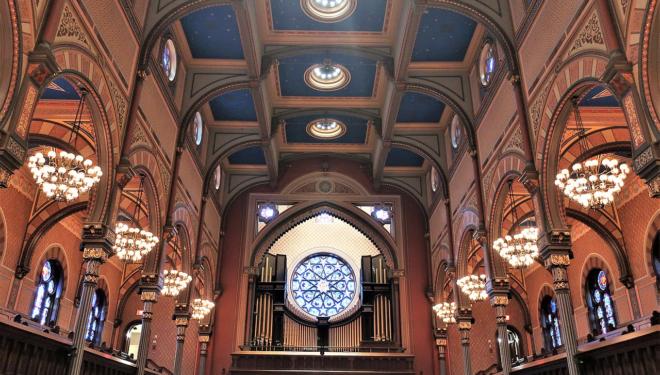

This is true in Kedushah d’Sidra as well, and for that reason, the chazan must recite the introductory verse preceding Kedushah out loud. In Kedushah, the congregation recites the verses “ Kadosh” and “ Baruch” in unison. Similarly, we find that many important prayers were established to be recited three times, such as Tehillah L’David ( Ashrei) every day, and Vayechulu on Erev Shabbat.

Hence, Kedushah is recited three times in Shacharit: first in Birkat Yotzer HaMeorot, again in the Amidah repetition, and a third time in Kedushah d’Sidra. Even after the decree was abolished, the custom to recite Kedushah d’Sidra endured ( Shibolei Haleket 44 Beit Yosef 132:2). After the guards left, the minyan would recite Kedushah d’Sidra. Some say that the Chachamim established the recital of Kedushah d’Sidra when hostile rulers decreed upon Israel not to recite Kedushah, and persecutors would stand guard at the prayer services until after the Amidah repetition. Nevertheless, to avoid cancelling its recital altogether, it became customary to recite it before Minchah, thereby adding some extra learning on Shabbat, particularly learning that pertaining to the sanctity of Hashem. In Shacharit of Shabbat, there is no need to say Kedushah d’Sidra, for one’s obligation to learn the Prophets is already fulfilled by reading the Haftarah.

Rashi explains that its recital possesses two virtues: the virtue of Torah learning, and that the verses discuss Hashem’s holiness. The Chachamim highly praise the recital of Kedushah d’Sidra, for after the destruction of the Temple, it became one of the remaining practices in whose merit the world stands ( Sotah 49a). That is why the verses are translated into Aramaic, so that the whole nation, which was fluent in Aramaic at that time, would understand their meaning. Chazal instituted its recital so that every person praying would merit learning some verses of the Prophets ( Nevi’im) every day. It contains the verses “ Kadosh, Kadosh, Kadosh,” “ Baruch kevod Hashem mimkomo,” and “ Hashem yimloch l’olam va’ed,” with their translation into Aramaic. These customs are printed in the siddurim before the Lamenazte’ach paragraph, and each ethnic group follows its individual custom.Īfter that, U’va L’Tzion, also named “ Kedushah d’Sidra,” is recited.

The only times it is not recited are on holidays, the eve of holidays ( erev chag), and the day following a holiday ( isru chag) ( Rama 131:1 Mishnah Berurah 35 Kaf HaChaim 37). Likewise, regarding the month of Nisan, and the days from Yom Kippur until the end of Tishrei, although Tachanun is not recited, Lamenatze’ach is. Therefore, when a chatan or a ba’al brit (the father, the mohel, or the sandak) is praying with the congregation, Tachanun is not recited, yet Lamenatze’ach is. According to the Ashkenazic minhag, in order for Tachanun to be omitted, a minor joyous occasion is sufficient however, for Lamenatze’ach to be omitted, the joyous occasion must be great. According to the minhag of the Sephardim, the law concerning it is like that of Tachanun, and every day on which Tachanun is not recited due to the joy of that day, Lamenatze’ach is not recited either. There are various customs surrounding this Psalm. Since Lamenatze’ach is a prayer about a day of distress, it is not recited on days of joy. May Hashem answer you on the day of distress”), which serves as a continuation of the prayers of supplication ( Tachanunim) recited after the Amidah. Although this prayer has already been recited in Pesukei d’Zimrah, the Psalm is repeated, for the Chachamim say ( Berachot 4b), “Whoever recites Tehillah L’David three times daily is promised life in the World to Come.” First it is recited in Pesukei d’Zimrah a second time after Tachanun, and a third time before Minchah (see the laws of Pesukei d’Zimrah earlier in this book 14:3 and note 5).Īfterwards, we recite the Psalm “ Lamenatze’ach mizmor l’David, ya’ancha Hashem b’yom tzarah” (“For the One Who grants victory, a Psalm of David. After Tachanun, (on Mondays and Thursdays following the Torah reading), three passages of prayer are recited.


 0 kommentar(er)
0 kommentar(er)
